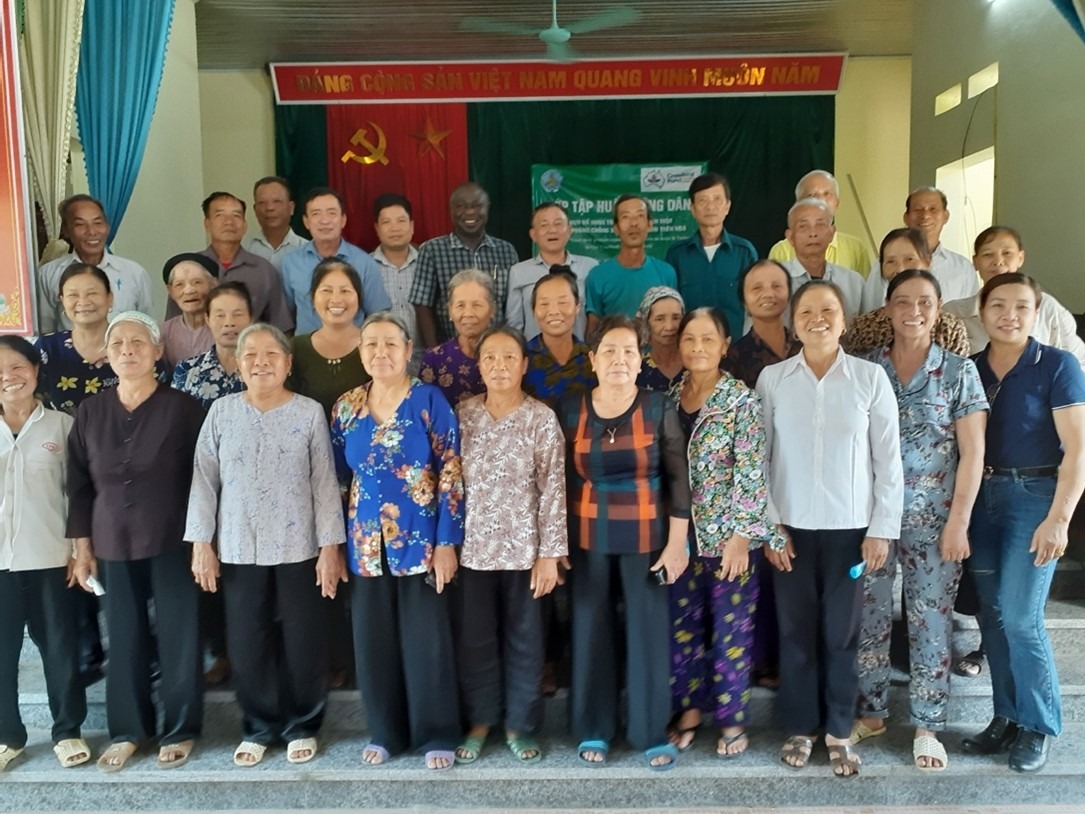

Food spray research and training for pest management in Vietnam
November 7, 2022

The Crawford Fund’s NSW Committee recently supported a visit by Dr Robert Mensah to Vietnam to lead a training initiative in supplementary food sprays at the Vietnam Plant Protection Research Institute (PPRI) in collaboration with Dr Liem Nguyen, based at PPRI.
This project has been supported by the Crawford Fund since 2020-21 and included funding to develop a “beneficial insect food spray” made with local food ingredients, that attracts beneficial insects into maize fields to manage Fall Armyworm and other pests on the crop. Dr Robert Mensah has been training Dr Nguyen and the professional and technical staff of PPRI as well as smallholder growers in Vinh Phuc remotely on how to prepare and use the food spray technology to manage pests.
The purpose of Dr Mensah’s visit from 18 – 25 June 2022 was to:
- to undertake face-to-face training of the technical staff at PPRI involved in the project
- train smallholder and commercial maize crop growers, collaborating project counterparts and field agents in the techniques of using the food spray technology.
The course introduced participants to food spray use pattern (how to prepare and when to apply food sprays), decision making protocols (optimal timing, application and rate), and field monitoring, recording, and habitat management.
Twenty-two participants attended the PPRI professional training course, and 31 growers attended the farmer training held in Vinh Phuc. Out of the 31 farmer participants 20 were women (64.5%) and 11 were men (35.5%).
Trials with smallholder maize farmers in Vietnam showed that, with suitable and continuous training, and as part of an Integrated Pest Management (IPM) approach, the food spray product used by farmers has reduced, or even eliminated use of chemical pesticides against Fall Armyworm and other pests and maintained farm income.
Both growers and professional staff are supportive of expanding the food spray project to cover other growers and other priority crops, particularly rice, sorghum, soybeans etc as they are using more insecticides on these crops. Some of the food spray ingredients tested in the project during the first and second season of the trials can be used effectively on other crops to manage pests and beneficial insects after re-evaluation for at least one season trial. The project needs to achieve over 70% adoption rate by maize growers from the current 30-40%.
Dr Mensah and Dr Liem also met with ACIAR Country Manager in Vietnam, Mrs Nguyen Thi Khanh An at the Australian Embassy in Hanoi where Dr Mensah presented the objectives and results of the food spray project.
He highlighted that using the food spray over three seasons against FAW on maize crops showed:
- no synthetic insecticide was required on plots treated with the food spray products
- conventional insecticide treated plots (farmer practice) had four insecticide applications
- the yields and net income to growers were significantly higher on the food spray treated plots than the farmers conventional insecticide practice.
The information regarding the trial and the results was well received, with potential future avenues of Australian funding and Vietnamese support identified, particularly as part of the country’s eco-friendly policy/approach to pest management on agricultural crops in Vietnam.




